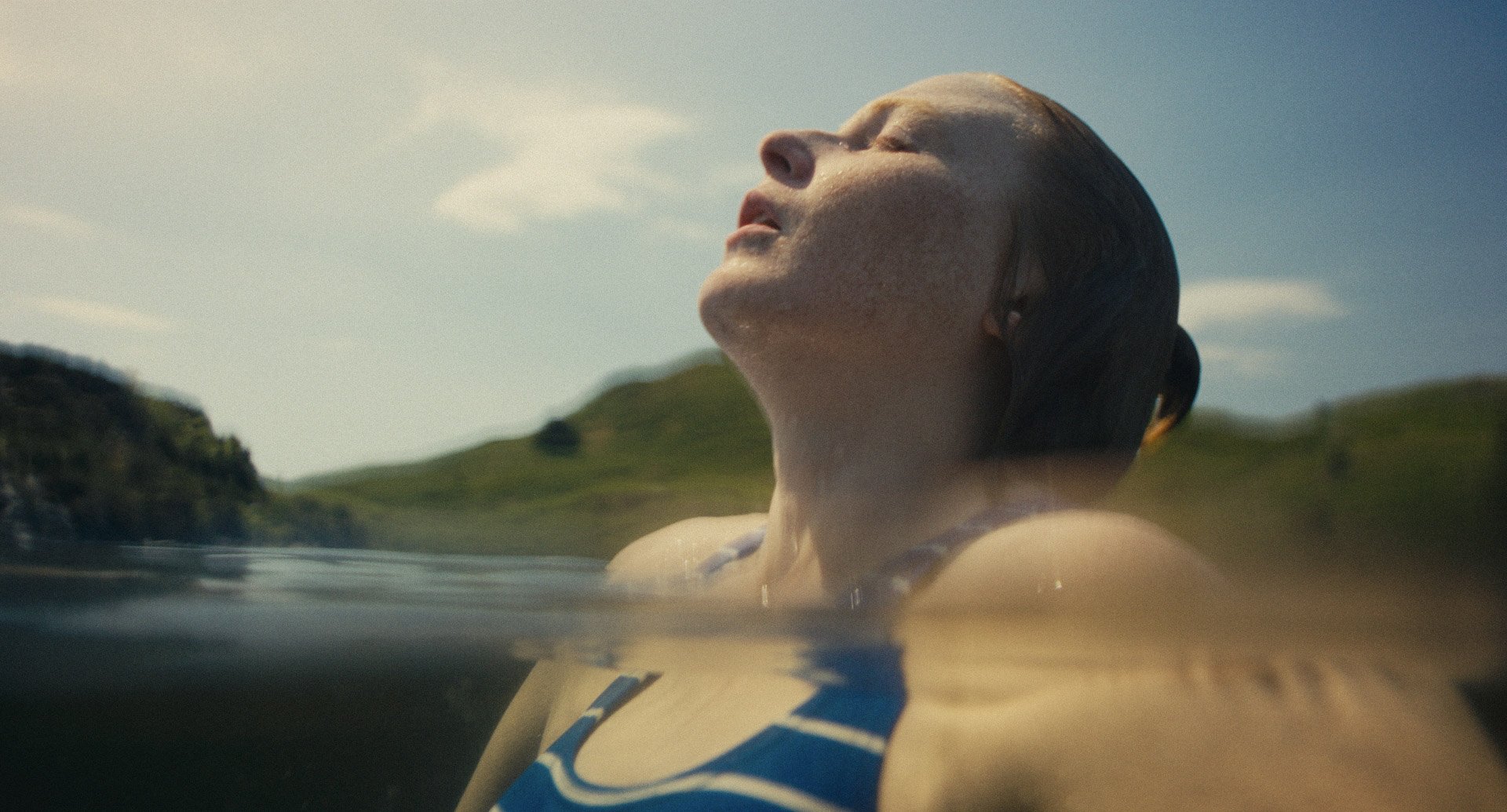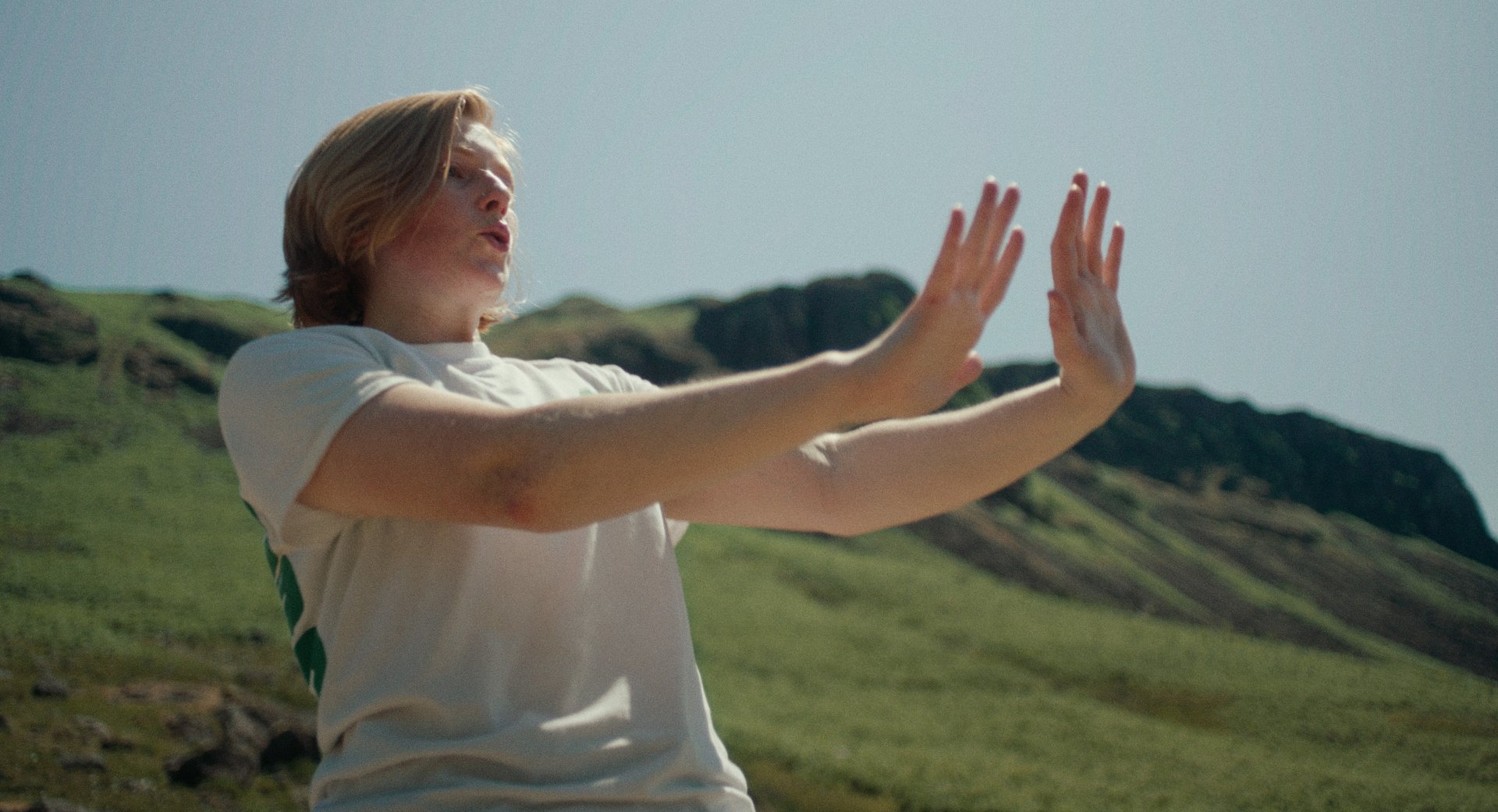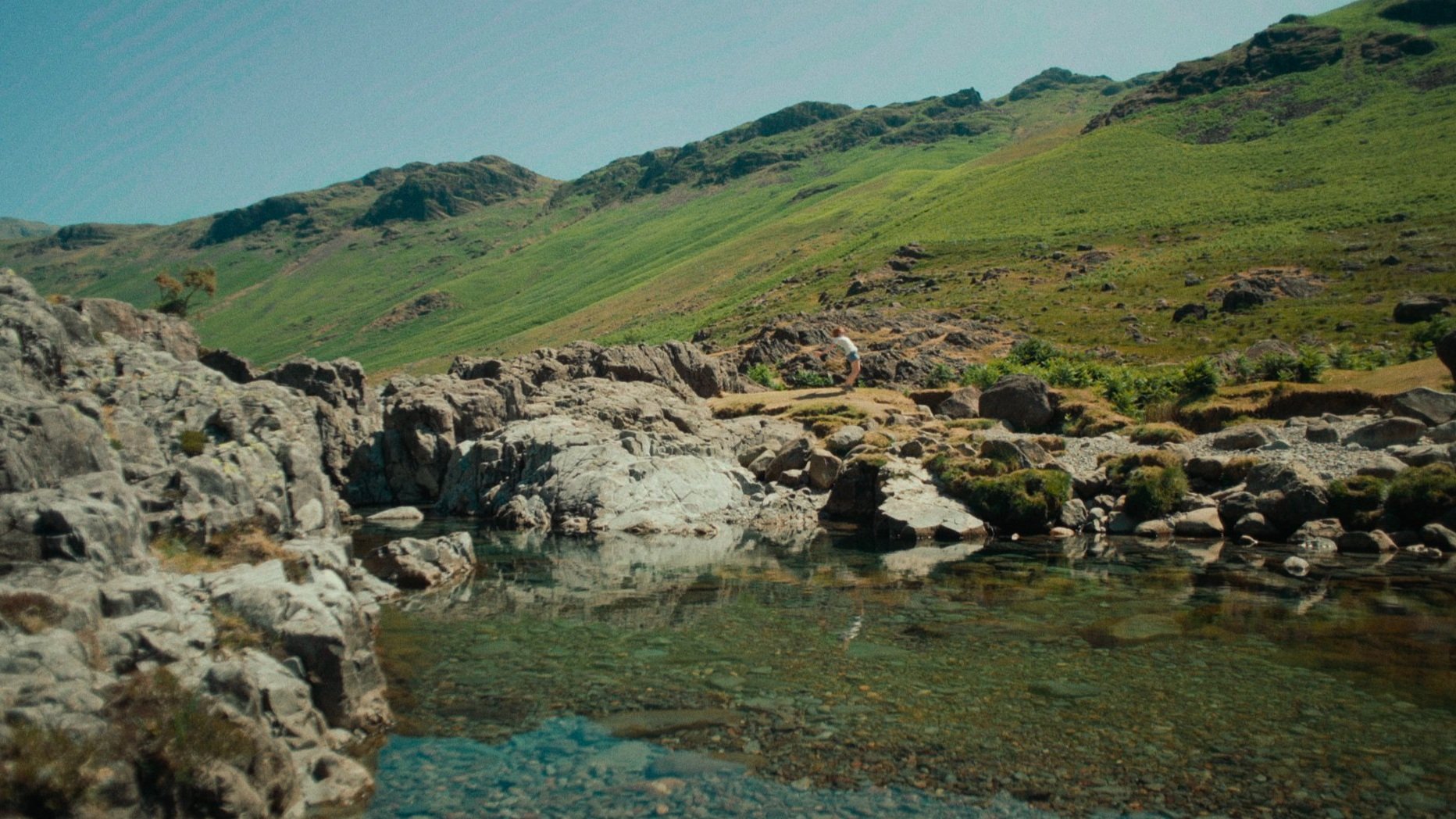4 Questions For: Autistic Filmmaker Sophie Broadgate
For this 4Q4 we talk with Sophie Broadgate, a filmmaker who uses her work to process her late-diagnosis of Autism. Sophie discusses the experiences that lead her to create her newest project, Part Fish.
01 What is Part Fish?
Part Fish is a short documentary film that investigates the interaction between Autism, burnout, anxiety, stimming and our environments. Part Fish sees me step in front of camera to share my journey through late diagnosis and burnout to Autistic joy and self acceptance. This will be the first project I’ve created where I’ve allowed myself to completely 'unmask', step in front of the camera and share what stimming looks like for me.
The film received production funding and last summer we completed filming. The film was shot in three beautiful locations across Cumbria. This year the film has been in post-production. We now need funds to complete the last stages of our post-production and send 'Part Fish' off into the world. We are raising these funds through Kickstarter.
An image from the Part Fish Documentary
02 Why did you make Part Fish?
I am making Part Fish due to the lack of representation of different experiences of Autism. Recently there has been a spotlight shone on the Neurodivergent community. I was so proud to see documentaries coming out that gave an insight into what Autism is, some of the science behind it whilst giving a platform for Autistic voices to be heard. After watching these documentaries I felt that there is so much depth left to explore on screen and so many nuanced experiences that had been left out of the conversation. A particular experience that I was keen to see discussed on screen is "Autistic burnout", a term that is commonly used within the Neurodivergent community to describe a prolonged period of time that you are unable to function at your usual capacity, experience loss of speech, loss of skills, exhaustion, brain fog, heightened sensory sensitivities and much more. I have had bouts of Autistic burnout throughout my entire adult life and until I was diagnosed Autistic I was told I was experiencing depression, which I felt didn't describe the experience correctly. In these periods of burnout I was desperate to understand what was happening to me and how I could feel better. I had an extremely severe case of burnout 2 years ago which led me to double down on her efforts to understand it.
Sophie stimming as part of the documentary
03 What allowed you to overcome Autistic burnout?
Through spending time in nature alone and stimming I was able to bring my brain back online. After this experience I wanted to share what I had learnt with the wider community. This is where Part Fish was born. The film also contains the voices of Jemma Swales (Autism practitioner, psychologist and director of Autus) and Jenny Holden-Wilde (Neurodivergent ecologist) who in conversation with me provide scientific and evidence based reflections to the film.
The natural world that helped Sophie overcome Autistic Burnout
04 Where can I learn more about Part Fish?
Head over to our campaign page to find out more about the film. You can get involved in the project on Kickstarter to find out about the team behind the project, receive exclusive Kickstarter rewards and join a community of people who are interested in discussing neurodivergence.
More information about the film can be found on our campaign page.
Sophie Broadgate (Director) and Margot Douglas (Producer) are also doing regular posting and updates through Instagram.




